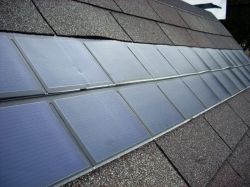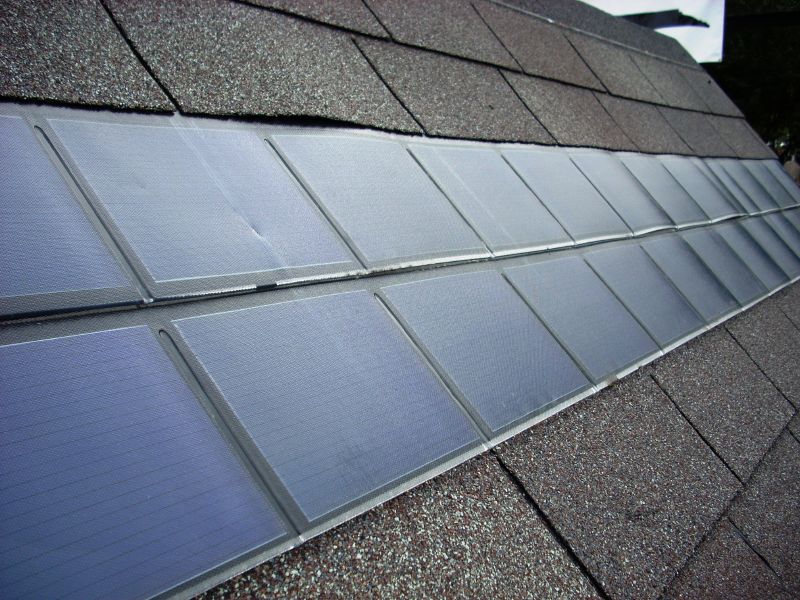
Ben WestThis roof doesn’t have solar panels — it has solar shingles.
Solar panels are becoming passé. Why put solar panels on top of building construction materials when you could just tap the power of the sun directly through the construction materials themselves?
Bloomberg reports on the rapid growth in building-integrated photovoltaics, or BIPV. These are solar power–harvesting cells that are incorporated into the walls, roofs, and windows of buildings — integrated seamlessly instead of being bolted onto a finished building as an apparent afterthought:
From stadiums in Brazil to a bank headquarters in Britain, architects led by Norman Foster are integrating solar cells into the skin of buildings, helping the market for the technology triple within two years. …
The market for solar laid onto buildings and into building materials is expected to grow to $7.5 billion by 2015 from about $2.1 billion, according to Accenture Plc, citing research from NanoMarkets. Sales of solar glass are expected to reach as much as $4.2 billion by 2015, with walls integrating solar cells at $830 million. About $1.5 billion is expected to be generated from solar tiles and shingles.
The technology provides a respite for solar manufacturers, opening the way for them to charge a premium for products. Traditional solar panel prices have fallen 90 percent since 2008 due to oversupply, cutting margins and pushing more than 30 companies including Q-Cells SE and a unit of Suntech Power Holdings Co. into bankruptcy.
The industry is already well established in the U.S., where Dow Chemical Co. (DOW), the country’s largest chemical maker by sales, is selling in more than a dozen states solar shingles that look like regular roofing material.
Expect green buildings of the future to look a lot more blue.


